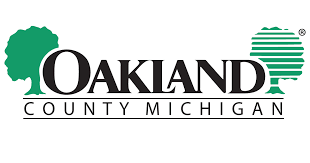
Small Business Restart Program to Provide $100 Million in Grants
Michigan Small Business Restart Program to Provide $100 Million in Grants for COVID-19 Recovery Efforts
The Michigan Strategic Fund today approved a $100 million program that will provide grants to small businesses around Michigan working to recover from the ongoing impacts of the COVID-19 virus, the Michigan Economic Development Corporation announced.
“The COVID-19 virus has especially impacted Michigan’s food and agriculture sector. This investment will provide critical resources to ensure the safety of Michigan’s food production industry and its workforce,” said Governor Gretchen Whitmer. “We can further our economic recovery in Michigan by putting federal dollars through the CARES Act to work for the people and business across our state through efforts like these grants to farms and food processors.”
The State of Michigan has appropriated $100 million of federal CARES Act funding through SB 690, signed into law by Governor Whitmer last week, to implement the Michigan Small Business Restart Program to support Michigan’s small businesses that are reopening and have experienced a loss of income as a result of the COVID-19 crisis.
The Michigan Strategic Fund today authorized distribution of the funding across 15 local or nonprofit economic development organizations (EDOs) covering all 83 counties in the state to providing a base amount of $3.5 million per EDO for grants up to $20,000 each to support certain small businesses that have realized a significant financial hardship as a result of the COVID-19 virus. Participating EDOs are as follows:
- InvestUP – $4,545,455
- Networks Northwest – $4,545,455
- Otsego County Economic Alliance – $3,500,000
- Target Alpena – $3,500,000
- The Right Place – $9,545,455
- Lakeshore Advantage – $3,500,000
- Middle Michigan Development Corporation – $3,500,000
- Saginaw Future – $3,545,455
- Flint & Genesee Chamber – $8,045,455
- Lansing Area Economic Partnership – $5,545,455
- Southwest Michigan First – $7,545,455
- Ann Arbor Spark – $8,545,455
- Oakland County – $11,045,455
- Macomb County – $7,545,455
- Detroit Economic Growth Corporation – $15,545,450
The Michigan Small Business Restart Program application will be live starting Wednesday, July 15 at michiganbusiness.org/restart and run through Wednesday, August 5. Funds can be used as working capital to support payroll expenses, rent, mortgage payments, utility expenses or other similar expenses.
To qualify for grant support, businesses must meet the following criteria, based on statutory requirements for the program:
- Is a business or nonprofit that can demonstrate it is affected by the COVID-19 emergency
- Needs working capital to support eligible expenses
- Demonstrates an income loss as result of the COVID-19 emergency
- Has not received a grant through the Michigan Strategic Fund’s Michigan Small Business Relief Program. Businesses who have received support through other COVID-19 relief programs, including the Michigan Small Business Relief Program loans, are eligible to apply for Restart grants.
Additionally, at least 30 percent of the funds awarded under the program must be provided to women-owned, minority-owned or veteran-owned eligible businesses. The MEDC anticipates that more than 5,000 businesses across the state will benefit from this program.
“With the outbreak of COVID-19, many small businesses have been faced with significant economic impacts, including challenges with cash flow and resources to support their workforce,” said MEDC CEO Mark A. Burton. “The Michigan Small Business Restart program, combined with other Michigan Strategic Fund programs and services as well as local and federal economic development support, will enable small businesses throughout the state to address the short-term impacts of the COVID-19 crisis while looking ahead to the long-term economic recovery needs of the state.”
Per statutory requirements, a monthly report will be provided to the legislature that includes a listing of grants awarded in the previous month and the name of the recipient of each grant provided under the program. All reporting forms will also be available on michiganbusiness.org/restart.
“The Michigan Small Business Restart grants will be an important part of the economic recovery of small business in Michigan,” said Brian Calley, President of the Small Business Association of Michigan, “This program leverages federal dollars to bring relief to entrepreneurs struggling with the effects of this global pandemic in a thoughtful way – including working through local EDOs to ensure resources are distributed in the most equitable and effective way for each region in the state.”
The Michigan Small Business Restart Program approved today is modeled after the Michigan Small Business Relief Program, approved on March 19 by the Michigan Strategic Fund to support small businesses impacted by the COVID-19 crisis.
The Michigan Small Business Relief Program consisted of a total of $20 million aimed at supporting businesses in need of immediate relief. The program included $10 million that was distributed to 15 local EDOs to provide grants up to $10,000 to certain small businesses impacted by COVID-19. Additionally, the program authorized $10 million for small business loans of not less than $50,000 and not more than $100,000 to eligible borrowers impacted by COVID-19 that were not able to seek alternative, suitable financing.
Under the Michigan Small Business Relief grant program, local EDOs selected more than 2,700 businesses across the state covering all 83 counties that received grant support expected to retain approximately 11,000 jobs. To date, more than 130 small business loans totaling more than $8 million have been approved through MSF delegated approval.
The Michigan Strategic Fund today also approved the $15 million Michigan Agricultural Safety Grant Program to support the needs of Michigan’s agricultural processors and farms. The program supports the implementation of COVID-19 monitoring and mitigation strategies to protect agricultural employees and the state’s overall food production industry. To learn more and see the grant application which goes live on July 15, visit here: https://www.michiganbusiness.org/press-releases/2020/07/$15-million-in-agricultural-safety-grants-to-provide-critical-relief-to-michigans-farms-and-food-processors.
With today’s action by the MSF Board, the MEDC has launched 17 COVID-19 relief and recovery programs supporting more than 3,100 business in the state and helping to retain more than 12,400 jobs across all 83 counties. To learn more about MEDC’s COVID-19 response programs and the impact they are having on economic recovery efforts, visit michiganbusiness.org/covid19response. Other resources for economic reopening efforts as well as businesses across Michigan struggling with economic losses as a result of the COVID-19 virus can be found online at michiganbusiness.org/covid19. The MEDC has also developed a FAQ for Michigan businesses and communities at michiganbusiness.org/covid19-faq.
Information around this outbreak is changing rapidly. The latest information is available at Michigan.gov/Coronavirus and CDC.gov/Coronavirus.
###
About Michigan Economic Development Corporation (MEDC)
The Michigan Economic Development Corporation is the state’s marketing arm and lead advocate for business development, job awareness and community development with the focus on growing Michigan’s economy. For more information on the MEDC and our initiatives, visit www.MichiganBusiness.org. For Pure Michigan® tourism information, your trip begins at www.michigan.org. Join the conversation on: Facebook, Instagram, LinkedIn, and Twitter.







